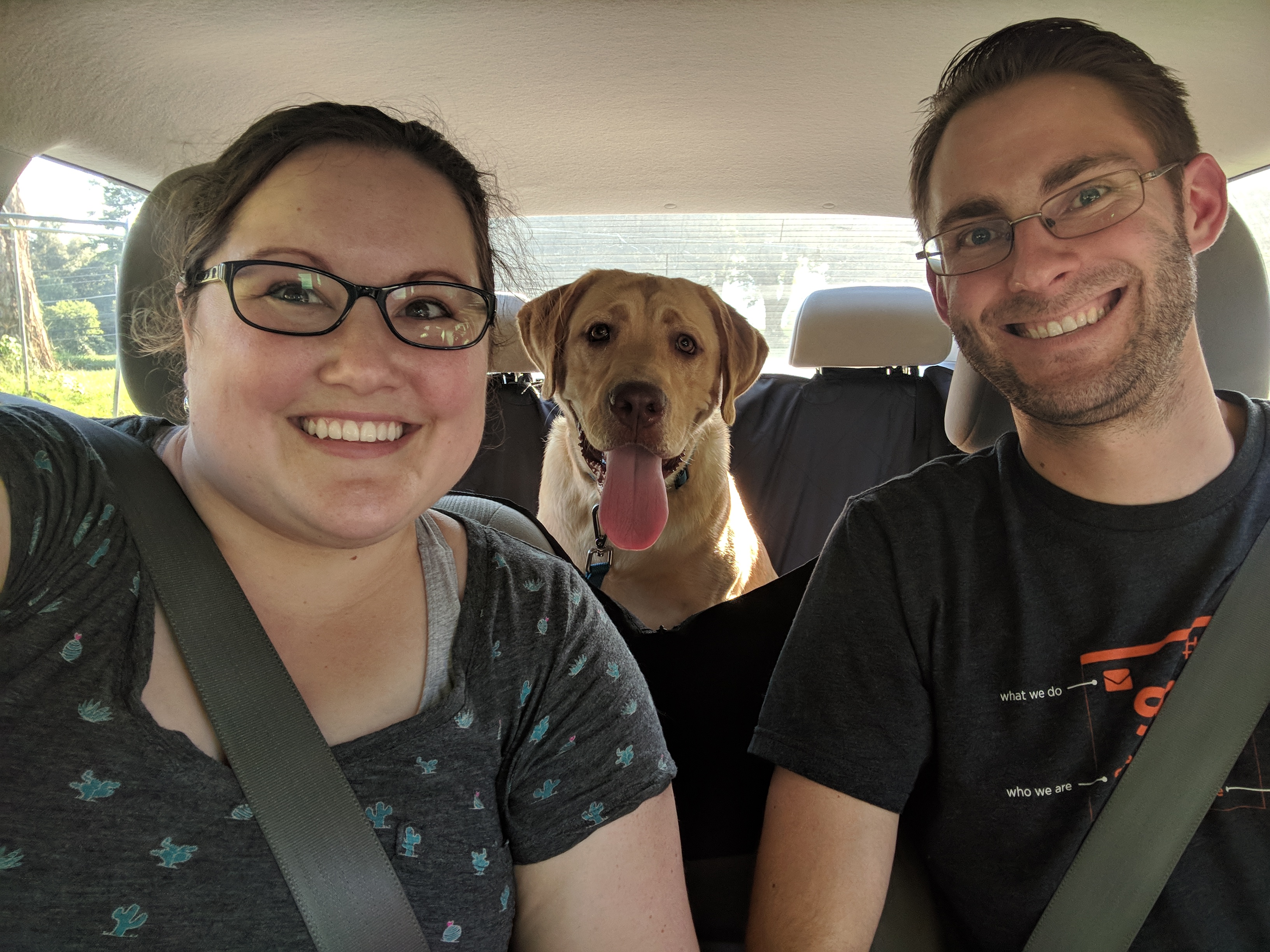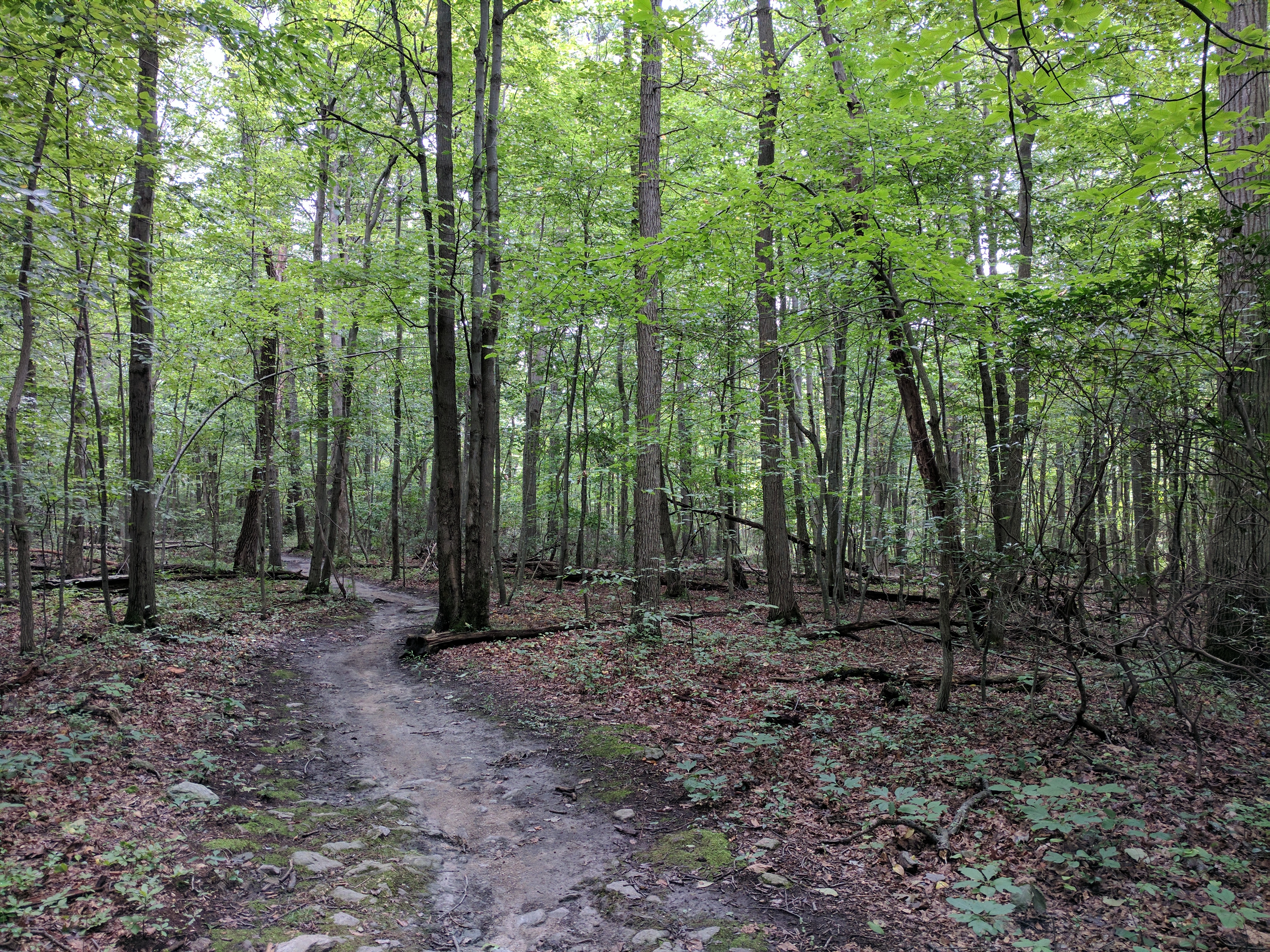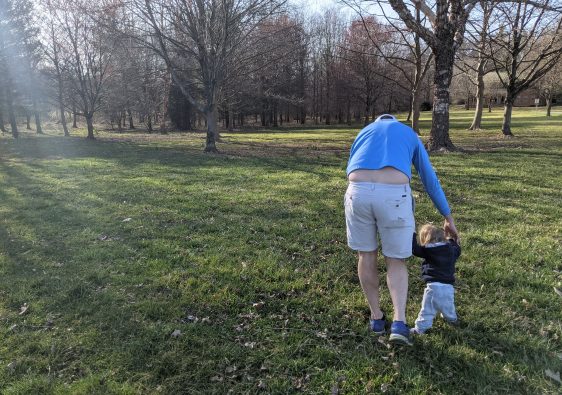In January 2013, I had just officially completed my time in academia.
As many of my regular followers know, I’d had a mental health breakdown in the summer of 2011 that led to diagnoses of OCD, major depression, and binge eating disorder. After a year of intense therapy (individual, groups, doctors, specialists….), I chose to leave my PhD program, prepare a Master’s defense instead, and enter the job market.
The turning point I can always look back on in that blur of a year is an evening Skype session with Matt, whom I was just about to get engaged to. I sat there crying about how I had no direction, I didn’t enjoy my work, and frankly I didn’t even know if we were getting married (even though he and I had already put down a deposit on the venue for the following year).
Obviously, Matt didn’t want to ruin the surprise of his proposal in two days, so he sweetly said the worst thing you can say to a depressed person, “Don’t worry, it’s all going to work out.”
That set me off more.
Through my tears and incoherent rambling, I remember saying, “I don’t know what I want to do anymore, but I know it’s not this.”
Saying it out loud made me feel immediately calmer.
The next day, holding back tears in a professional setting, I met with my advisor to let him know I needed a break, and, while he meant well, he responded, “Ok that sounds good. Do you need a few weeks?”
That turned my almost-tears into laughter. That simple statement summed up academia for me. No, I did not need just a few weeks to get my head and life back together, I needed at least a semester. Maybe more.
But I also knew by leaving that day, I was likely leaving for good, whether I wanted to come back or not. I was tainted–not directly because of mental illness, because everyone was supportive of that process. I’d literally received F’s in my classes while I was trying to fend off panic attacks and thoughts of suicide.
Those F’s and the year without significant research progress (ok I published a journal paper that would become my Master’s thesis and funded myself to speak at an international conference during that time, which is impressive in hindsight) were going to require a lot of explaining to get me a post-doc position and beyond.
I was finished.
Oh yeah, and it was the 4th of July. Literally Independence Day. It was all too poetic.
Matt and I got engaged in D.C. the next day, and I began the transition into my new life.
To avoid turning this post into an entire memoir of the last 5 years, let’s insert a bit of a montage:
- Dog walking and nannying for the 1% while finishing my thesis
- Applying for 300 jobs because my skillset of “tornado scientist” wasn’t as transferable outside of academia as I’d hoped
- Taking the first job I got an interview for, in which they called me with an offer a few hours after the interview, while I was out having a celebratory interview dinner with Matt and telling him I didn’t like the place all that much.
- Coming home from the first day of that job and telling Matt I was starting a writing and editing business.
- Picking up clients like USA Today because I was so niched as a graduate-degreed scientist doing science, technical, and medical writing that I figured all of business would be that easy.
- Quitting my corporate job a month after our wedding and just six months into the job to pursue entrepreneurship half-time and tutor the children of the 1% for the rest (the best-paying gigs you can get in the D.C. area are services for the 1%), which could make a memoir of its own.
- Hiring someone to create my pet travel supplies ecommerce dropshipping website who thought I was illegally selling and shipping pets internationally but continued making the site for me anyway.
- Picking up another big government contractor client whom I negotiated to the top of their budget for my pay, then quitting 3 months later.
- Realizing that I wanted to make a bigger impact on people, not just make sure proposals for medical grants were ready for submission.
It’s not that I wasn’t seeing success in my freelance business or the other endeavors I was dabbling in, it was the fact that I was making a small impact on a very small scale that ate away at me, particularly after contributing two papers to the scientific literature that I believed made a difference for tornado and radar research.
This stuff was fluff. I could do it, and I was good at it, but I wanted to take a bigger risk with the hope of more reward.
At that point, I set up The Off-Road Millennial podcast, with no real monetization plan but the hope that people would hear about all the offbeat lives these people were living and ask me how they could do it too. Brilliant, I know.
In hindsight, I never made it clear that I was offering that on the podcast, nor did my website make it clear anyone could hire me for anything, but I was collecting followers who enjoyed the show and did a good job of promoting it via social media.
So I began offering to create social media marketing strategies for people, and that’s when I really started to get paid as a consultant. But I noticed the biggest problem people had when coming to me was not the social media, but the systems to manage it and the other components tied to it: content, networking, time management.
Systems sent me off on quite the wild goose chase, frankly.
And I found out after the fact that multiple people thought I was a virtual assistant for two years and thought it was “cute” I was moving into consulting this year. For the record–after tech writing?–I was always consulting. But that gave me some insight into what my branding and messaging must have been saying. And that whatever it was saying, it was saying “Let me help you!” instead of “I’m an authority.”
I established an agency that nobody asked for before we had any clients. We got a couple of clients and we still didn’t need the full agency. Solopreneurs really didn’t want to hire a systems agency when their primary needs were marketing leads and sales.
In fact, I learned at least a year later through other connections that those 7-figure business owners you know didn’t start setting up systems until they had made at least $500k in a year. The ad hoc approach was working for them, no problem.
So who actually needed systems?
Tech startups! (I answered myself without doing significant additional research into it)
I attended a tech startup conference in Silicon Valley, where I have never felt more out of place. Not just because I only saw about 15 women there, but because there was a clear mismatch between what I wanted to offer and what that market needed. Similarly to the online business owners, all these guys needed to get started was a business guy for connections and a programmer for building the thing. Once they got funding, their Venture Capitalists connected them to the right systems people (also? “Systems” in software means something else anyway).
At some point, I looked around and had four websites going: The Off-Road Millennial, Systems Scientist, Mydzik Consulting, and my personal site where I wrote and hosted my speaking page.
It was too much.
Now let me pause us here for a second to confirm that yes, I was making money during this time. At this point this might read like a laundry list of my mistakes, and it is. But I was making money back with The Off-Road Millennial once I came up with an offer that didn’t suck.
In fact, the best thing I did as my business evolved was accept the fact that my clients referred to me as their “business coach,” whether I insisted I was more of a consultant focused on systems/marketing/whatever or not. They were getting results, so they didn’t much care how my business was structured or what I called myself to help them do that.
I made a commitment to myself back in the very early days of my business to never publish income reports or talk about my money, because, in my mind, it was more important that I talked about the results my clients were getting than my own behind-the-scenes. I’m not a horn tooter, and aspirational marketing (“Look! I have money! I’m on a beach! Hire me to live my life!”) was a gray area for me. Sure, I post plenty of #entrepreneurlife Instagram photos when Matt and I are on vacation, but that wasn’t the backbone of my lead generation strategy.
Well, I’ve come to learn that that may have been another bad assumption about the market on my part, and a lot of the market is interested in a prospective coach’s own finances and lifestyle, not the results they have helped clients achieve. To me, what good is a consultant with an amazing life if they’ve not replicated that success for their own clients? Anyway, that’s a shame, but it’s their prerogative.
So at some point you look at what you’ve created and the minimalist in you says “Ok, where can we consolidate?”
I dissolved all the brands except for my personal brand, where the business consulting reemerged as The Creative CEO. I felt good about this sub-brand, whose words were seemingly contradictory and evoked strong responses from people.
Honestly, I’m still too close to the brand to evaluate it the way I can the others. I assume that the ambivalence from the market came, unsurprisingly, because many people who identify as creative don’t identify as CEOs, and vice versa. I also think it probably needed some more time and space to grow.
And I could have kept going with The Creative CEO. In fact, I had an entire 6-month plan mapped out for it. The Incubator was a cool concept I hadn’t seen implemented the way I was executing it in this space, and I foresaw an entire standalone site, maybe even a magazine, that would host the group, events, retreats, interviews, and more.
I saw the vision for the brand, and I didn’t like it.
I was once again looking around going “Is this what I’m doing with my life? The impact I’m leaving on the world? The day-to-day I want to create?”
And I took a moment to reflect. And by “a moment” I actually mean about 6 months.
Unlike the last time I left an industry disillusioned, I didn’t leave crying, confused, or uncertain about what to do next.
There was no singular “ah-ha” experience this time around.
In fact, the feeling of “I don’t know what I want to do anymore, but I know it’s not this,” actually started hanging around me about a year ago. Not in a sudden conversation with Matt or a friend, not in reading a single Facebook post that left me shaking my head, not in hearing about an individual coach who did something questionable with their client.
It was all of it.
When I left STEM academia, I lost some friends who were academia-or-bust, and I gained back some friends who had previously thought I was academia-or-bust.
I was disillusioned with the path ahead due to a mixture of conversations with people well ahead of me in my academic journey, support meetings for graduate students, therapy, and reading too much of The Chronicle of Higher Education every morning.
There were too many PhDs in the pipeline for the number of jobs available, particularly tenure track jobs. This was in part from the recession and in part because the Master’s was now the new Bachelor’s. (As an aside: my labmate asked me what I was reading one morning and I said “Ah, it’s an article about having too many PhDs.” He paused, thoughtfully, and said slowly, “Shouldn’t you just worry about getting your first PhD right now?”)
Being a woman and getting pregnant in academia often meant fighting the tenure clock. A lost year could easily mean lost tenure. Not to mention the “two-body problem,” in which Matt would need to effectively give up his career to follow me around to my jobs, or we would continue our long-distance relationship in perpetuity.
Plus there were the usual issues of bureaucracy, having to live in a specific area to conduct a specific type of research, and other things that seemed outdated in the digital age. As someone with newly discovered mental illnesses, I couldn’t imagine those getting better with the famously dismal academic “work-life balance.”
And because academia moves so slowly, I’d likely be close to retirement before seeing any of the changes I wanted to fight for.
Essentially, I left academia with a laundry list of why it made sense to leave academia before I got any further in.
I’m leaving the online business coaching industry with something a little different: a general feeling of unease.
I’m leaving with the sense that a few of us are saying “You know…something’s not quite right with this world” but no one is exactly putting their finger on it.
Clients and friends alike have quietly said to me, “…Isn’t this kind of just a big circlejerk?” or “It’s kind of incestuous, right? In a different way than the local Chamber of Commerce is. Like, is this what business is like, or is this just the online business world?” or “I mean, what’s the point? I give money to them, they give money to someone else, and someone gives money to me, but are we actually doing anything that matters?” And, as my college intern commented last summer, “Isn’t this all a little…scammy?”
I don’t know.
I love ambiguity, which is why I started talking a bit about “living in the gray” recently. That space between good and bad, black and white, right and wrong.
I don’t necessarily think there is anything “wrong” with the coaching industry, but there’s not enough that feels “right” to me to continue sticking around.
There are a few people sounding the trumpet on either side of this argument: hard proponents of coaching being the best thing ever (“perhaps it just needs some regulation”) and hard proponents of it being the worst thing ever (unless you hire them, in which case they’re “not that kind of coach”).
So for now, I’m leaving, and I’m going to pursue writing full-time. I was on the right track when I left academia and corporate to start a writing business, but my execution was off. I’m taking a different approach this time, the monetization of which I’m still teasing out.
But I have already started my first actual book project.
It’s a short, nonfiction essay collection that explores the coaching industry and the things people are saying to each other but not out loud. It might make you uncomfortable, not because I’m taking a firm stance, but because I am not. I expect a lot of 1-star reviews on Amazon complaining that this is some tell-all from a “washed-out coach,” but I’m writing it to get the conversation out in the open. What’s going on, and what do we do about it, if anything?
If you’re interested in being updated on the book, whose working title is “Not That Kind Of Coach,” you can join my book list here.
I’m writing it from the perspective of someone in the coaching industry, but it’s relevant for anyone in the online space, interested in getting into the online business industry, or friends and family of online entrepreneurs who want to understand what their son is doing on his computer all day.
—
It’s been a long 4.5 years for me, and an even longer six months.
Creation became my key word, my mantra. The word that I focused on as I worked and, often, went through the motions. What was I “creating?” Another business coaching platform with 30-minute trainings about how to set up a funnel, automate things, and run yet another 30-day challenge?
I was contributing to the noise with a “me too” business, not creating a portfolio of work I could point to and be proud of.
When I envisioned what goal I was working toward, what I would point to when my future child asked what I made, I saw in my mind’s eye me pointing at a pile of money and saying “That. That is what I created.”
And while I believe that I can be a creative and make money, I’m here to build a body of work. Something beyond my finances that will allow me to answer:
“What did I make? I made people think more deeply about what they’re doing with their lives, I made people get help for their problems, I made people ask their loved ones how they were feeling, I made people decide to make a change in their community, I made philanthropic contributions that were something beyond money, and I made time for dinner, and a run, and a kayak trip, and your dance recital. That’s what I made.”




You made a difference to me, and I make a difference to others every day, not through online classes and coaching, but through face-to-face work with people who need help and meaningful support right now. As I’m sure you remember, I finally realized that I’m a face-to-face woman whose clients want face-to-face help and embraced it while working with you. You held up a mirror so I could see that.